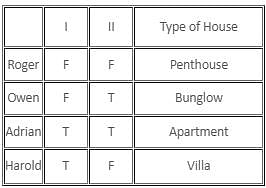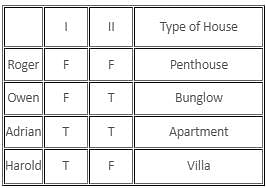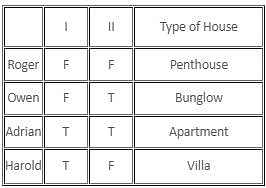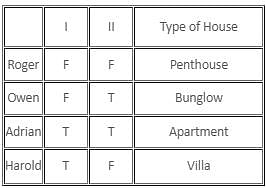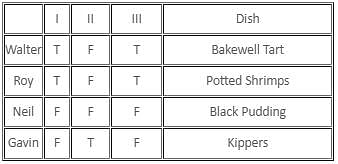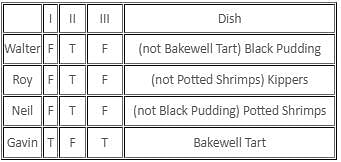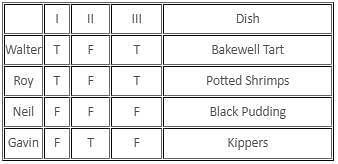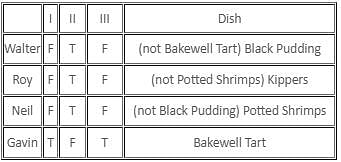CAT Exam > CAT Tests > Daily Test for CAT Preparation > Test: Binary Logic (April 25) - CAT MCQ
Test: Binary Logic (April 25) - CAT MCQ
Test Description
10 Questions MCQ Test Daily Test for CAT Preparation - Test: Binary Logic (April 25)
Test: Binary Logic (April 25) for CAT 2025 is part of Daily Test for CAT Preparation preparation. The Test: Binary Logic (April 25) questions and answers have been
prepared according to the CAT exam syllabus.The Test: Binary Logic (April 25) MCQs are made for CAT 2025 Exam. Find important
definitions, questions, notes, meanings, examples, exercises, MCQs and online tests for Test: Binary Logic (April 25) below.
Solutions of Test: Binary Logic (April 25) questions in English are available as part of our Daily Test for CAT Preparation for CAT & Test: Binary Logic (April 25) solutions in
Hindi for Daily Test for CAT Preparation course. Download more important topics, notes, lectures and mock
test series for CAT Exam by signing up for free. Attempt Test: Binary Logic (April 25) | 10 questions in 20 minutes | Mock test for CAT preparation | Free important questions MCQ to study Daily Test for CAT Preparation for CAT Exam | Download free PDF with solutions
Detailed Solution for Test: Binary Logic (April 25) - Question 1
Test: Binary Logic (April 25) - Question 2
The person in the bus coming from which of the following cities, always alternates between speaking the truth and a lie?
Detailed Solution for Test: Binary Logic (April 25) - Question 2
Detailed Solution for Test: Binary Logic (April 25) - Question 3
Detailed Solution for Test: Binary Logic (April 25) - Question 4
Detailed Solution for Test: Binary Logic (April 25) - Question 5
Detailed Solution for Test: Binary Logic (April 25) - Question 6
Test: Binary Logic (April 25) - Question 7
Who always alternate(s) between telling the truth and lying?
Detailed Solution for Test: Binary Logic (April 25) - Question 7
Detailed Solution for Test: Binary Logic (April 25) - Question 8
Detailed Solution for Test: Binary Logic (April 25) - Question 9
Detailed Solution for Test: Binary Logic (April 25) - Question 10
|
152 docs|327 tests
|
Information about Test: Binary Logic (April 25) Page
In this test you can find the Exam questions for Test: Binary Logic (April 25) solved & explained in the simplest way possible.
Besides giving Questions and answers for Test: Binary Logic (April 25), EduRev gives you an ample number of Online tests for practice



